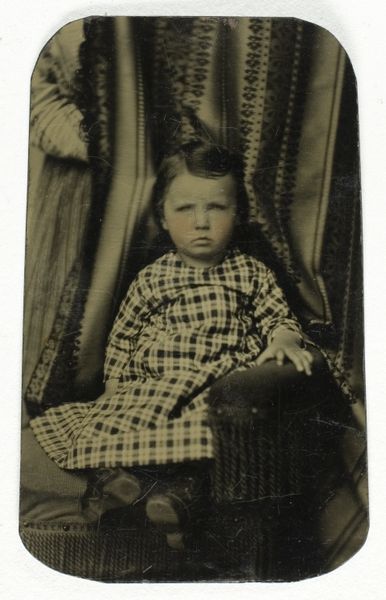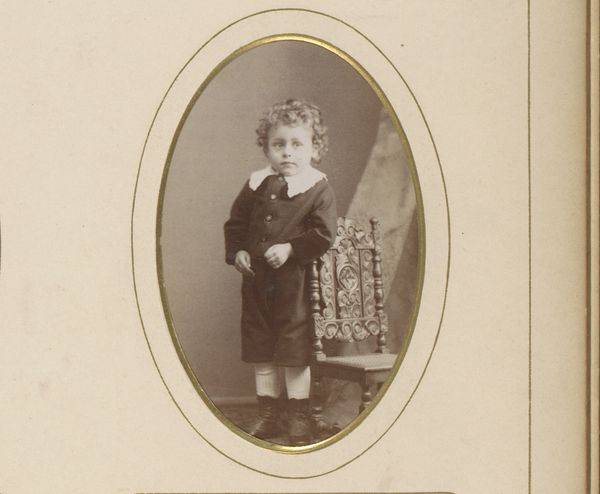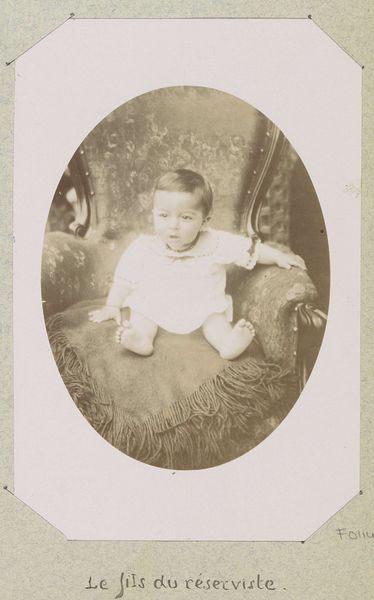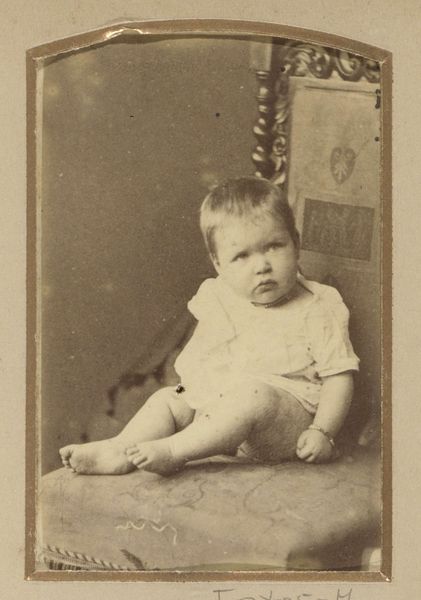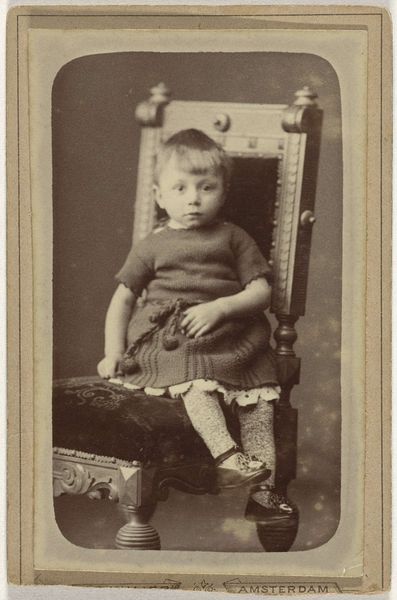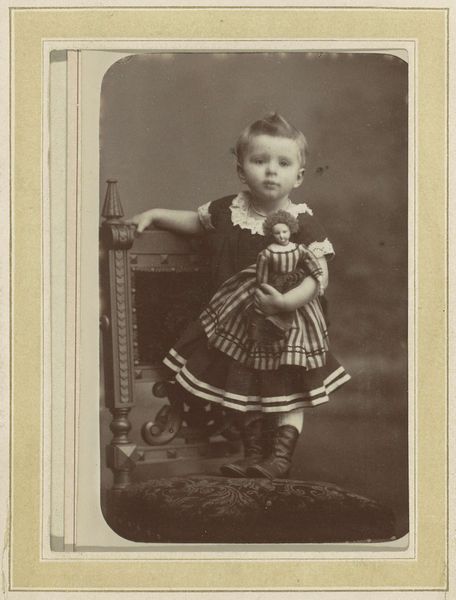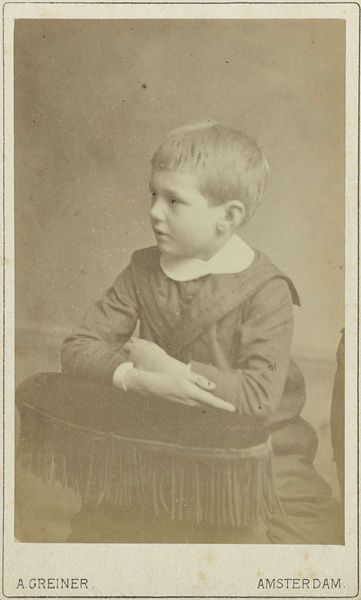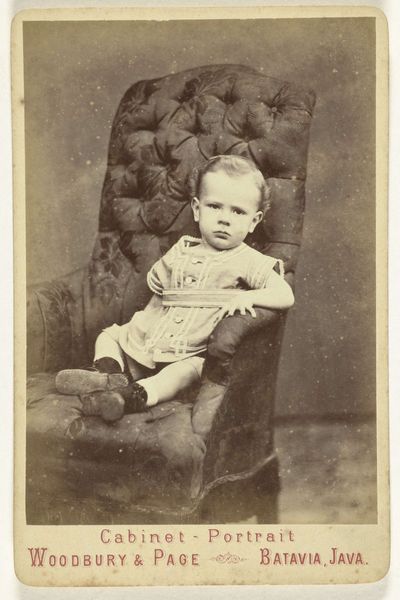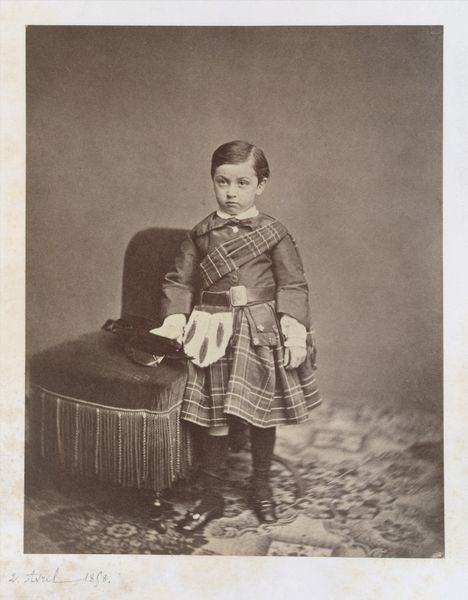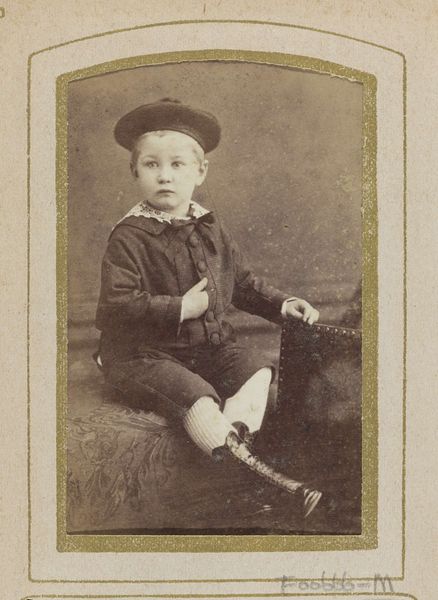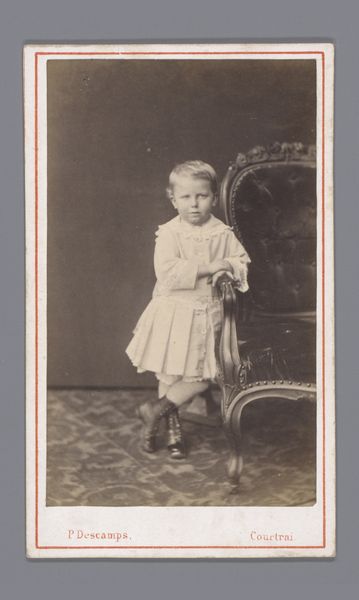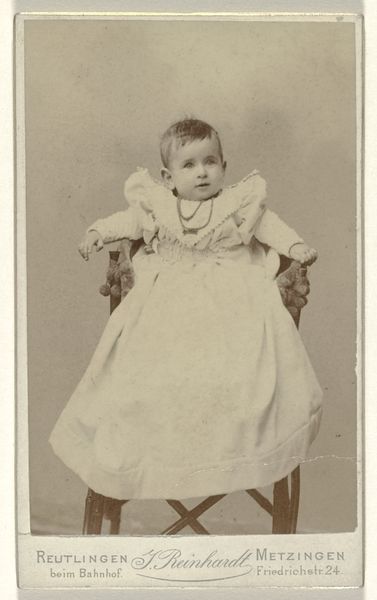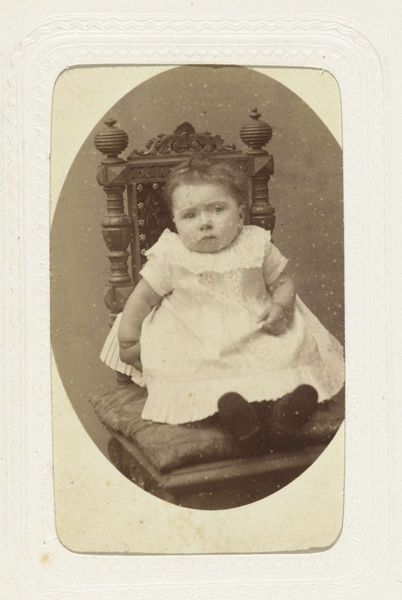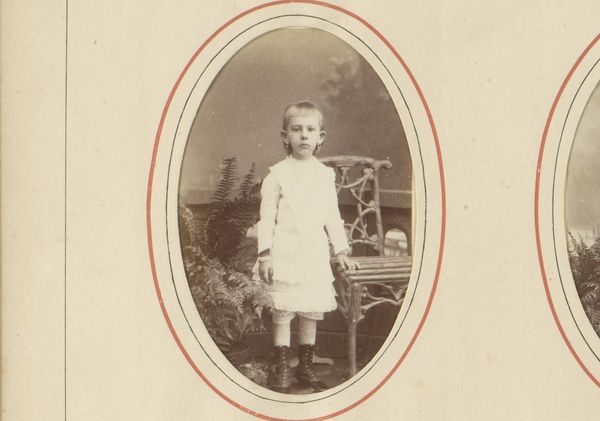
photography
#
portrait
#
still-life-photography
#
portrait
#
charcoal drawing
#
photography
Dimensions: 5 15/16 x 2 1/4 in. (15.08 x 5.72 cm) (image)4 1/8 x 2 1/2 in. (10.48 x 6.35 cm) (mount)
Copyright: Public Domain
This "Untitled" photograph by William H. Gurney, presents us with an intimate, formally composed portrait. The sepia tone imbues the piece with a sense of history and nostalgia, softening the contrast and creating a uniform tonality that encourages a slower, more contemplative viewing. The image is carefully structured: the child is positioned slightly off-center, drawing our eye to the direct gaze and capturing a moment of stillness. The texture of the child's clothing, rendered with clarity, contrasts with the soft background. The composition invites us to consider the interplay between presence and absence, between the specificity of the subject and the universality of childhood. Through its formal qualities, the photograph prompts questions about representation, memory, and the passage of time. It serves as a site for ongoing interpretation, inviting viewers to reflect on the cultural and personal meanings embedded within its visual structure.
Comments
minneapolisinstituteofart about 2 years ago
⋮
An important part of New York City-based photographer Jeremiah Gurney’s business was making small-size portrait photographs. Beginning in the 1850s, cartes de visite (calling cards, or visiting cards) photographs were popular. They were often made with a four-lensed camera, capturing four of the same image at once. They were printed eight on a sheet and each photograph was mounted on a thick cardboard paper sized 2.5 in. by 4 in. Cartes de visite were shared among families and friends, and mostly were stored in photographic albums. However, by the early 1880s, cartes de visite were replaced by larger cartes de imperiale (cabinet card), also albumen prints, mounted on cardboard backs measuring 4.5 in. by 6.5 in. Because of their size, cartes de imperiale would have been visible from across the room. As such, they were often displayed using frames and small stands.
Join the conversation
Join millions of artists and users on Artera today and experience the ultimate creative platform.
